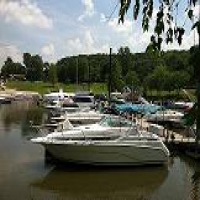Internet February 19, 2014, 7:52 pm Google Fiber,
Post# of 17655

Google Fiber, Ultrahigh-Speed Internet, May Expand to 34 New Cities
By CLAIRE CAIN MILLER
 A Google Fiber installation van. Fiber is supposed to run 100 times faster than typical broadband connections.
A Google Fiber installation van. Fiber is supposed to run 100 times faster than typical broadband connections. Google is taking steps to expand Google Fiber, its nascent ultrahigh-speed Internet service, to 34 cities in nine metropolitan areas across the country as it grapples with the challenges of working with local governments.
Fiber is supposed to run 100 times faster than typical broadband connections, which travel through copper cables instead of fiber-optic ones. Google says using fiber connections would make it faster to search the web, download a movie, send medical images and build other, yet-to-be developed applications. Yet just 7.7 percent of United States homes have fiber connections, compared with two-thirds in parts of Asia.
“People do more and more of what they love on the web when speeds are fast, and they walk away when speeds are slow,” Kevin Lo, general manager of Google Fiber, said during a call with reporters on Wednesday.
Google announced in 2011 that Kansas City (in both Kansas and Missouri) would be the first city to get Fiber , after a nationwide contest during which one city even changed its name to Google for a month. Last year, Google announced that Fiber would also go to Provo, Utah, and Austin, Tex.
On Wednesday, even though Google has not yet connected all the households that signed up in Kansas City and none in Austin, it announced that it would consider installing Fiber in the metropolitan areas of San Jose, Calif.; Salt Lake City; Phoenix; San Antonio; Nashville; Atlanta; Charlotte, N.C.; Raleigh-Durham, N.C.; and Portland, Ore.

The announcement signaled a change in plan for Google’s rollout of Fiber. Instead of choosing cities and promising to install Fiber, Google is inviting cities to do much of the legwork — like preparing infrastructure maps, ensuring that Google can put its fiber on existing poles and paving the way for permit requests — before Google will decide whether to move forward. The company said it would notify the 34 cities by the end of the year whether they were selected.
The projects in the initial three cities have offered lessons for Google, a company used to writing software to solve problems instead of grappling with real-world challenges like tearing up and rebuilding roads and trying to please citizens and local officials.
“We’re acknowledging readily now that building a telecom network or fiber-optic network is a really big job,” Mr. Lo said.
“One big push in one city can be enormously disruptive to a community that’s not ready, both for residents and city officials,” he said.
Google’s plans added a wrinkle to Comcast’s $45 billion takeover of Time Warner Cable. Regulators are expected to closely examine the merger , which would combine the country’s two largest cable companies, which have few major competitors. Now Google is framing itself as a bigger competitor than it was.
“Competition is good in these local markets, and as providers have to compete, they lower their rates on traditional Internet speed and also improve their service offerings,” Julian Castro, mayor of San Antonio, said during the Google call with reporters.
Google previously said that it started Fiber to spur other Internet providers to improve the speed of their services and that it welcomed competition because Google eventually makes more money when more people use the Internet more often.
Cities including Chattanooga , Tenn., have built their own high-speed fiber-optic networks, and AT&T began offering one in Austin after Google announced its plans to install one there.
Google executives have also cited Fiber as an important new business for the company. Expanding to more cities could give it greater negotiating power, perhaps an ability to persuade TV stations to join its digital TV service, which is included with Internet in initial markets.
Google declined to comment on its costs for Fiber. In Kansas City, it charges $120 a month for gigabit Internet plus TV service or $70 for gigabit Internet alone. Customers can also receive a slower Internet connection free if they pay a $300 construction fee.
Scott Lazenby, the city manager of Lake Oswego, Ore., a suburb of Portland that Google selected as a potential Fiber city, said it was “completely a surprise” when Google told the city of its selection last week and asked it to begin tasks like providing maps and fast-tracking permits. “We were absolutely excited,” he said.
Mr. Lazenby said he was concerned about the inconveniences of tearing up streets and the potential for Google to raise prices because it would be a monopoly provider of fiber in the town. But he said he thought Google was more concerned with the Internet services it could provide rather than the cable lines themselves.
“My hope is what they’re ultimately interested in is content and doing more things with the service, and the infrastructure part is just the means to that end,” he said.
 (0)
(0) (0)
(0)